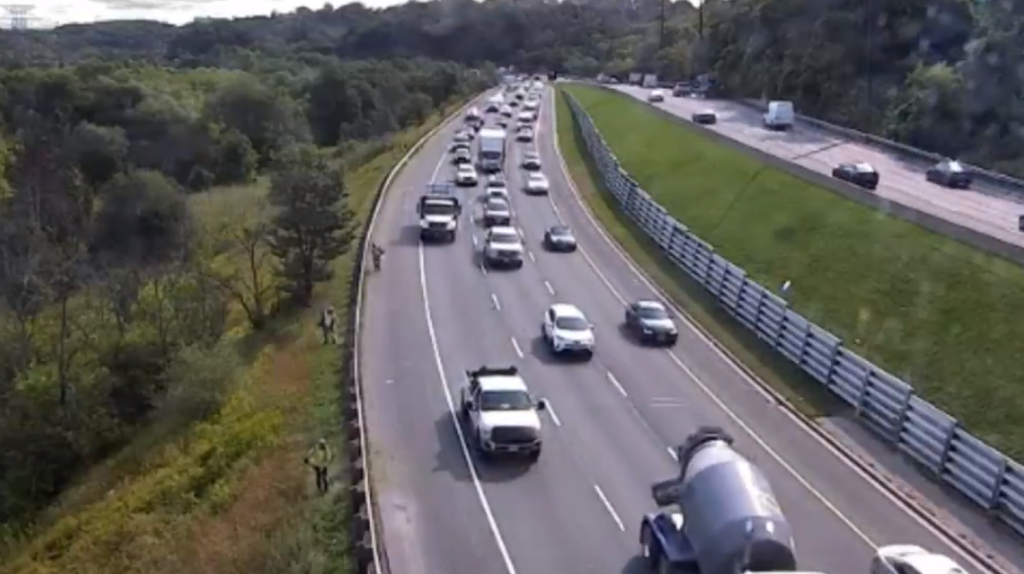Thai protesters vow to step up rallies, nullify disrupted election
Posted February 3, 2014 12:34 am.
This article is more than 5 years old.
BANGKOK – Anti-government protesters in Thailand vowed Monday to stage larger rallies in central Bangkok and push ahead with efforts to nullify an election they disrupted, preventing millions of people from voting.
Despite fears of violence, voting proceeded peacefully in 90 per cent of polling stations Sunday. The protesters forced polling booths to close in Bangkok and southern Thailand, leaving some legislative seats unfilled. As a result, a series of special elections are required to complete the balloting, extending the country’s political paralysis for months.
Election results will not be announced until all areas have successfully voted.
After sabotaging the election process, the protesters and their allies said they will go to court to try to get the polls nullified on several grounds, including that they were not completed in one day.
The opposition Democrat Party, which backs the protesters and boycotted the vote, said Monday it is studying other legal justifications to invalidate the election as well.
The struggle to hold the balloting was part of a 3-month-old conflict that has split the country between supporters of Prime Minister Yingluck Shinawatra and opponents, who allege her government is too corrupt to rule, and that she is a puppet of her brother, ousted Prime Minister Thaksin Shinawatra.
Thaksin, a billionaire businessman who is the most divisive figure in modern Thai history, fled into exile to avoid a corruption conviction after being deposed in a 2006 military coup.
The demonstrators have occupied major intersections in Bangkok and forced government ministries to shut down and work elsewhere.
“We are not giving up the fight,” protest leader Suthep Thaugsuban said. “Our mission is to keep shutting down government offices, so don’t ask us to give those back.”
Suthep, a former opposition lawmaker, said the movement was closing two of its Bangkok protest sites to consolidate at five other locations for safety against attacks by government supporters.
The move is bound to cause more disruption in central Bangkok, where protesters have shut major intersections in the Silom and Sukhumvit business districts and Ratchaprasong shopping district, where many of the city’s upscale malls are located.
The protesters are demanding the government be replaced by an unelected council that would rewrite laws to combat deep-seated corruption and money politics and remove the Shinawatra family’s influence from politics. Yingluck has refused to step down, arguing she was elected by a large majority and is open to reform, but that such a council would be unconstitutional and undemocratic.
The protesters are a minority that cannot win elections, but comprise a formidable alliance of opposition leaders, royalists, and powerful businessmen who have set their sights on ousting the government. They have won past battles — by ousting Thaksin in the army coup, and by forcing out two Thaksin-allied premiers through controversial legal rulings.
Many believe another so-called “judicial coup” will bring down Yingluck’s government.
Suthep’s public assurances to followers that the election will be nullified leaves “no doubt” that the constitutional Court will end up hearing a case seeking to annul it, said Verapat Pariyawong, an independent lawyer.
If the election is nullified, Verapat said there will be “more blood on the streets,” a reference to expectations that the government’s many rural supporters are unlikely to sit idle.
Before Thaksin was deposed in 2006, the constitutional Court nullified an election won by his party. The ruling found in part that the positioning of ballot booths had compromised voter privacy.
The United States expressed regret that many Thais were prevented from voting. State Department spokeswoman Jen Psaki said Monday the U.S. doesn’t want to see a military coup or recourse to violence, and remains concerned that political tensions are posing challenges to Thailand’s democratic institutions and processes.
“We certainly don’t take sides in Thailand’s political disputes, but we continue to urge all sides to commit to sincere dialogue to resolve political differences peacefully and democratically,” she told reporters in Washington.
___
Associated Press writers Jocelyn Gecker and Todd Pitman in Bangkok and Matthew Pennington in Washington contributed to this report.










